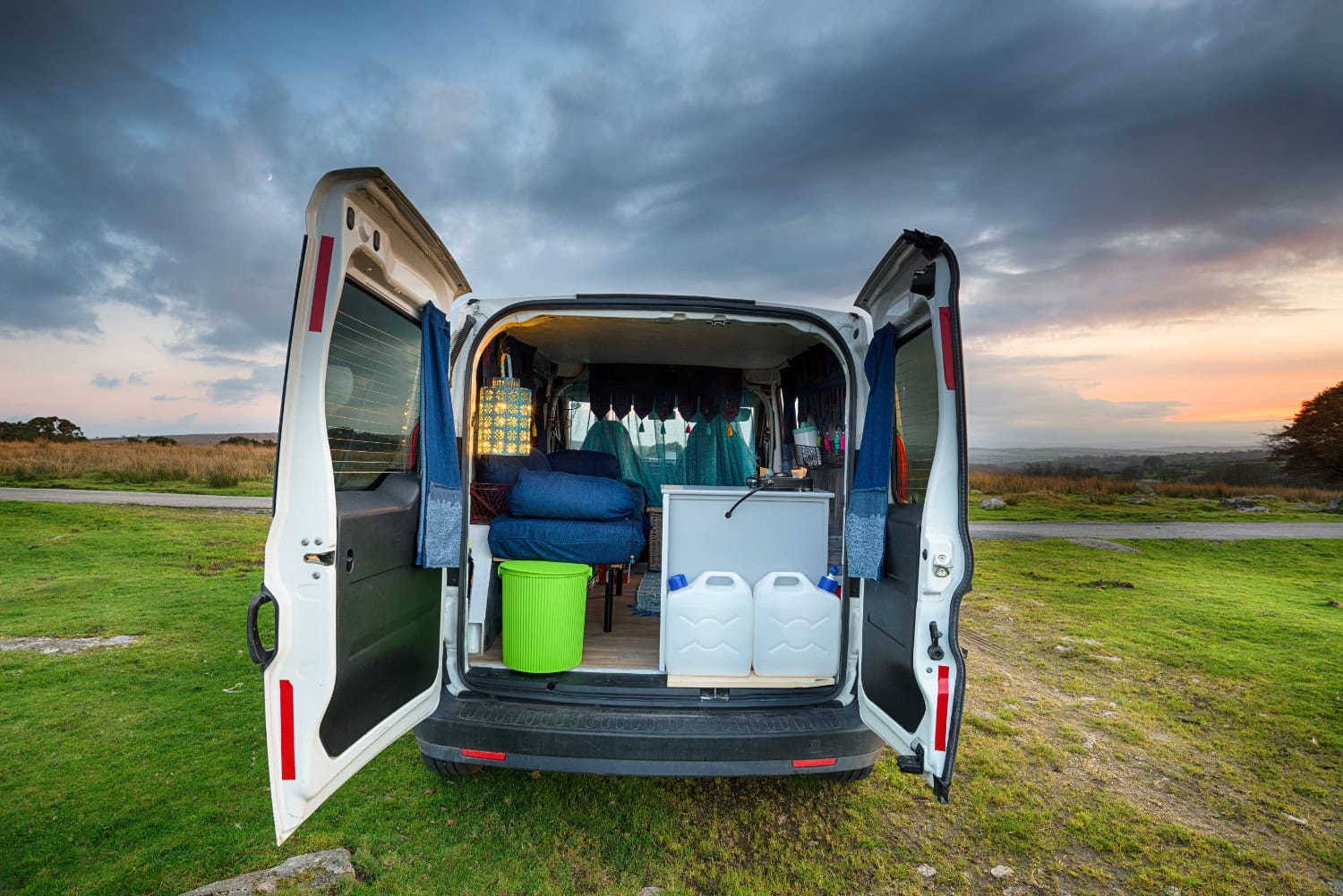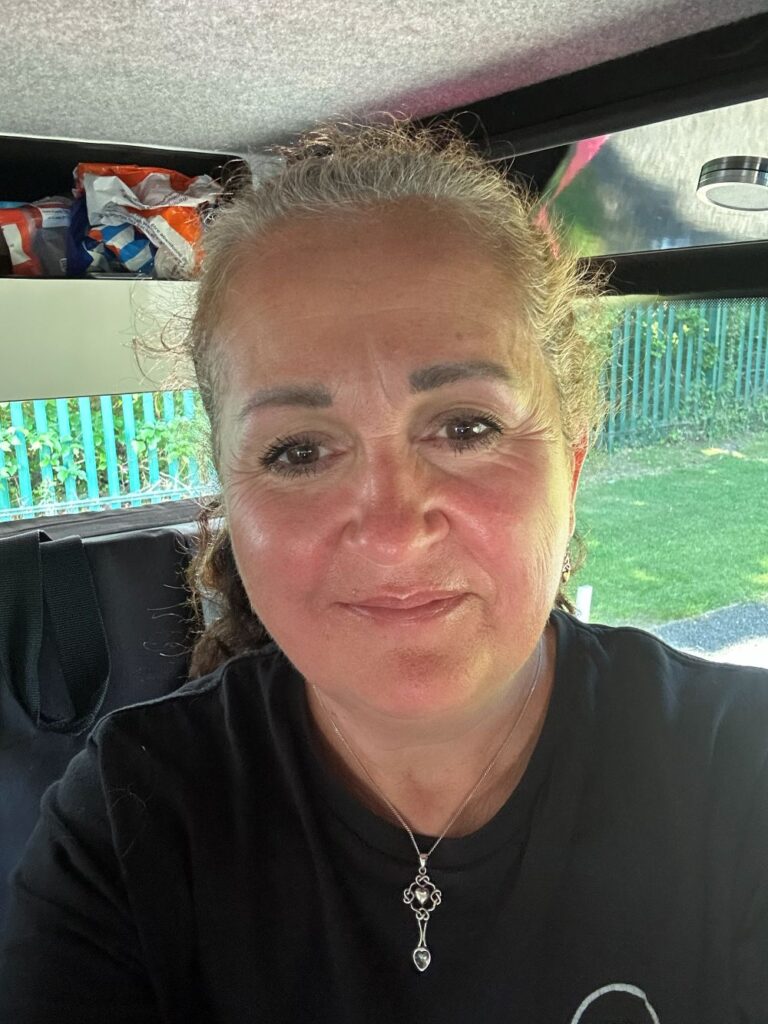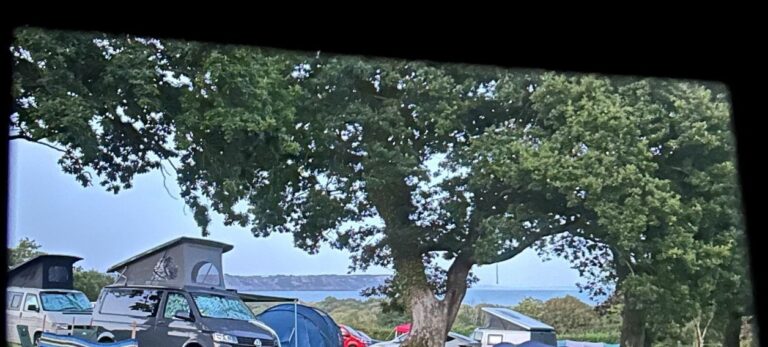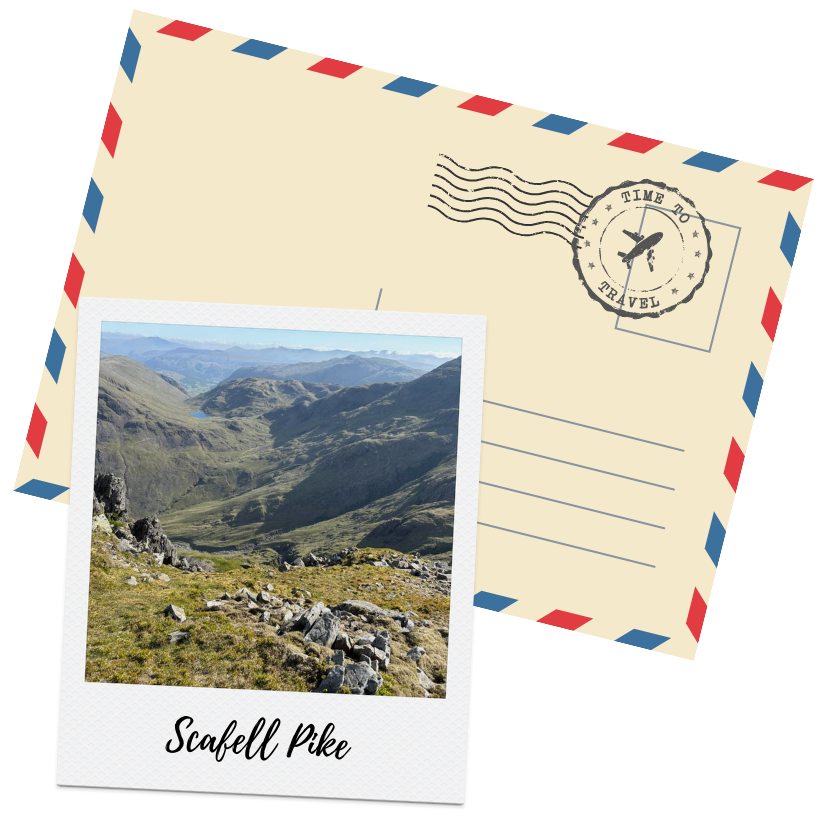Water & Hygiene Essentials
Water – You’ll need a large container to collect water with a screw top to stop the water splashing about when carrying back from the water point on site, unless you have a big motorhome/van which has a larger capacity for water, then you can pull up into the motorhome service point on site, connect your hose and away you go.
Most sites have some form of drinking water although there are a few rare ones which provide nothing except a pitch – you’ll need to be completely self-contained to use those sites, but they are cheaper.
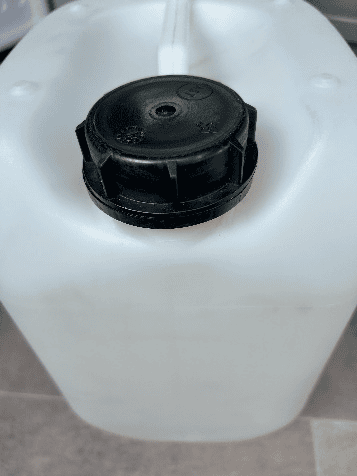
If you find yourself searching, people just use water bottles from supermarkets. If you think this is too expensive, you can also ask at fuel stations as these often have outside taps, but don’t take without asking and if you’re not buying anything, then they may refuse.
Water adds weight to your van and may affect fuel consumption. I just take what I need. If I’m going to a site with access to drinking water, then I’ll fill the container halfway just in case. Oh, and make sure you get rid of ‘old’ water and use some form of detergent or Milton sterilising tablets and swill it out every other time you fill (or half-fill).
Water bucket/bag – not what it’s designed for but great to use for carrying the washing up. I once nearly lost all my dishes, cafetiere (I like coffee in the morning), and saucepan, all because I had two small washing up bowls (for ease of storage, so a larger one would suffice if you’ve got the room, I’m in a VW campervan). I couldn’t open the door, but a lovely woman saved me from complete carnage. That was the last time I used them. A folding water bucket has handles, there you go. Much easier to open (often) heavy doors with what is a bag, rather than a solid bowl which needs two hands to carry.
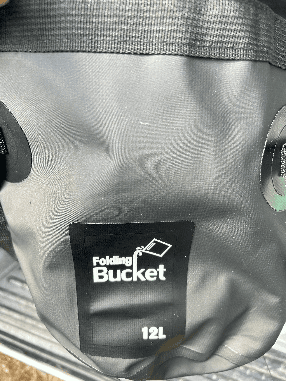
Tip – soak your cloths in Ecover – your preference as to which detergents you use – before you go to the dishwashing area, less to carry. Sometimes there may only be one block for toilets/shower/washing up, and it may be located a good distance away from your pitch.
Cleaning & Maintenance
Cloths – for drying up – don’t do that at the washing up area. Takes too long and things will get wet again in the bag anyway – clean/wash bag out each time – hygienic. Most sites have scalding hot water in these areas. Watch you don’t burn yourself but save the drying up until you get back to the van. You’ll spend all that time ‘hot’ washing your dishes then you’ll probably contaminate them again faffing around with the tea towel in the washing up area!
BIG kitchen roll – always comes in handy for a multitude of tasks.
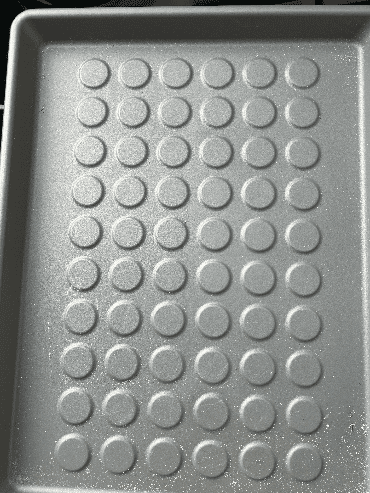
Tray for shoes/boots (just a normal food tray) – saves mess and can be cleaned off easily, remember it does rain sometimes…
Flip flops – shower use only to prevent against foot infections. Make sure you swill them off after every use.
Washbag – carry small bottles to the shower – buy big ones (shampoo, shower gel, and conditioner) and top up each time, less to carry and more convenient.
Solar shower bag – this is essentially a bag which you fill up, then hang on the side of the van to heat up during the day – it mostly works well during the warmer months. I used one at a festival, the good old days, and it worked well.
Flannel – you never know when you may need a personal wash, even on the way somewhere, it gets so hot sometimes when you’re travelling!
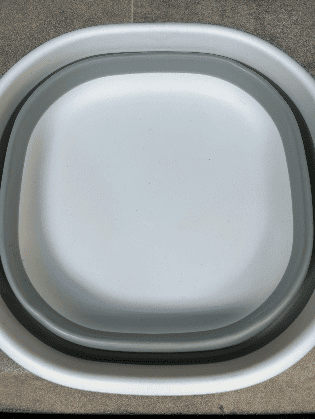
Wash bowl (collapsible) – multiple purposes – can be used for washing yourself/inside of the van/ outside of the van and stores neatly away.
Clothing & Storage
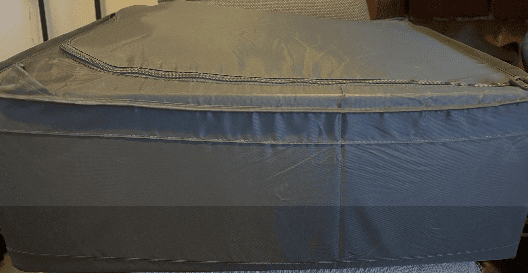
IKEA storage for clothes – easy to store, underneath the bed for me, opens from the top like a suitcase but without a solid lid, so you don’t necessarily need to pull it out each time. Keeps clothes clean, tidy, categorised, etc. Don’t forget your raincoat and a set of ‘comfies’ or a ‘surf’ towel to go to the shower block with. With regard to shoes – walking boots, trainers, a decent pair if you’re living it up for the night and heading to a local pub, all flat shoes preferably, and of course the flip flops – see below.
Small towels -to dry yourself, at the showers or at the beach, as opposed to larger ones. Easier to wash, quicker to dry. Can carry three and alternate. There’s nothing worse than soggy wet towels hanging around a small van when it’s pouring outside. Yes, sometimes sites have drying rooms, and yes, you could check out the laundry room.
See laundry section for tips.

A fleece top of sorts. Can wear at night if really cold – it was in May – I was toasty in mine.
Sleeping & Comfort
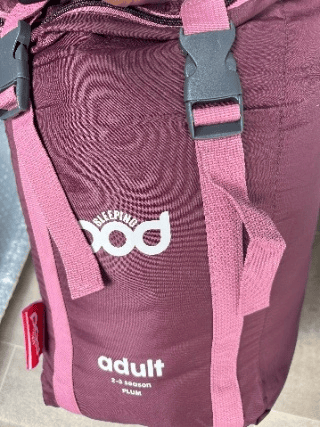
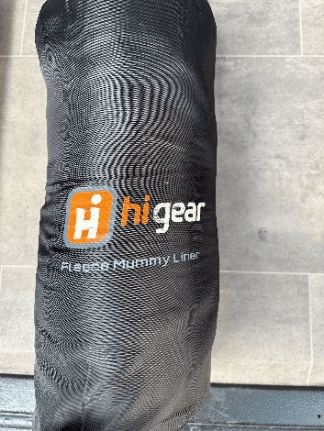
Sleeping bag or duvet – I’ve used both. Home from home is a lovely idea and it worked for me to start with but be practical. A sleeping bag with an insert is better – because you can wash the insert and everything takes up less space. Attempting to wash and dry sheets is a nightmare, and think of the cost.
Mattress topper – a must for comfort.
Two pillows – I’m not greedy, they serve as cushions as well.
Director’s Chair – easier to store. Sitting outside to eat, especially when you don’t have an awning is great in the good weather, and it serves as a hanging point for my washing – or just to dry my towel.
Ruck sack – a must if you plan to walk or just to get out and about – remember, you can fit food provisions in a rucksack, then you don’t need to use plastic bags!
Cooking & Food
Cupboard food – Tins/noodles/rice – buy some ready-made stuff, you may need a quick fix – not healthy long term.
Fridge food – do not overload, you are not at home, and I doubt your fridge is huge! Be sensible, only buy what you know you’ll eat, therefore less waste. Go to reduced section if possible as cheaper (obvs) but also it helps you decide what you’re having for your tea.
If no fridge, then it’s a cool box for you. There are sites which offer fridge/freezer storage, make sure of this before you leave if you’re planning to take food to cook with you.
Alternative – onsite food vans – again, check the amenities before you book. If it’s a short trip, and it’s meant to be a break from the norm, then take advantage of sites which offer this service (but check the reviews, as services may only be available for a limited period or may have been discontinued).
Gas – If no built-in hob – use a portable gas stove (easily purchasable at any camping store, online or from one of the more well-known retailers) and purchase extra butane cans – you go through them much quicker than the gas cylinders – I’ve done both. For both options, make sure you have purchased a carbon monoxide detector.
Camping kettle – don’t forget your cuppa in the morning! Only applicable if you have gas. Otherwise buy a cheap electric one if you plan to use EHU most of the time. I have both – just in case. Then I can switch between the two and not bound by EHU all the time. Also works out less expensive overall. 12V electric kettles are available, they do cost more than standard mains voltage ones.
One saucepan –saves space, multiple use, why carry more than one.
One frying pan – deep, preferably with a lid – multiple uses – same as above, utilise your resources whilst saving space.
Utensils – well, that’s up to you to decide what you’re taking and utterly dependent on how you plan to feed yourself. But don’t overload the van with items you will rarely use. Be resourceful!
Power & Utilities
EHU cable – don’t forget your hook up cable! Always handy – sites vary in price for hook up but you will need EHU even with a solar panel. Solar panels are great but only charge so much but it does depend on the size of your outfit and how many panels you’ve got – for me only one – 3 days max without electric hook up with running a fridge. Unless you’re moving every day and travelling for at least 2 hours each time, then you may be able to get away with it for longer.
I have a 25m one. Why? Well, isn’t it better to have the longer one, especially when it was needed at the second site I stayed at. Sites may provide an extension free of charge, but unfortunately, they may not, so what are you going to do? You’ll pay more for one locally than online so be prepared.
Laundry bag – this can be ANY bag, it doesn’t have to specifically be a ‘laundry bag’ but it keeps dirty clothes separate, easy to carry everything to the laundry room – if there is one. You may need to locate something in the local town. Launderettes do still exist. Drying costs are expensive so consider a portable whirly gig or the small ones (plastic, fold up underwear ones) – you can hang these on a chair or your wing mirrors!
Waste Management
A small bin – I put all my rubbish in and then sort into recycling/general afterwards. Take it to the recycling point when you’re on your way out and then your van is always free of mess. Some sites don’t have recycling points, so you must take your rubbish with you. If you’re on a long trip, going to various places, check out local towns. They often have large recycling bins; some public places already have designated recycling bins, and supermarkets offer this service. The bins are now often at the entrance to the store and some even have food recycling waste bins too!
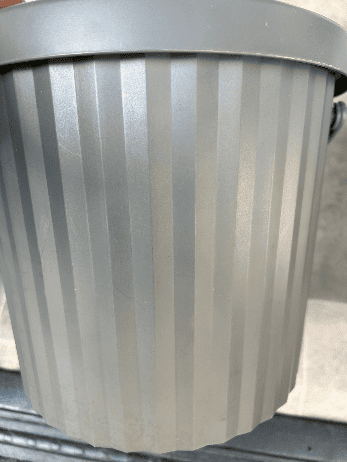
Toilet – always carry something portable. I have a chemical toilet. Rarely used but there if I need it. You will need to decide which chemicals to use. There are debates about pick, blue or green. Check which ones suit where you are going in readiness for when you need to empty it.
If you are more of an ‘off-grid’ camper, certainly not to encourage people to just pitch up anywhere as it’s mostly illegal. ‘Wild’ camping refers to tents only with no motorised vehicle involved. But possibly if using pubs, laybys (if no signage to tell you otherwise), then you will need to empty your waste regularly. There are campsites which charge you to do this. Check out which ones offer this service. DO NOT dump illegally – excuse the pun!
Heating & Climate Control
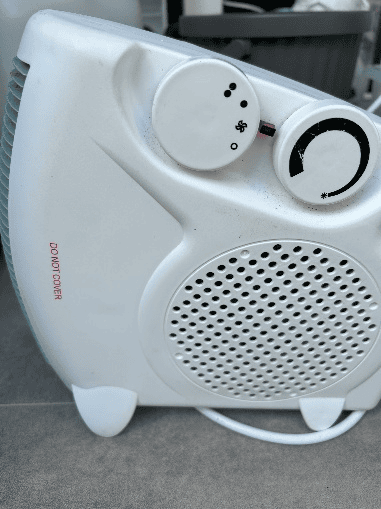
Heating – depends on whether you have installed a diesel heater (make sure you have purchased a carbon monoxide detector) or if you plan to stay at sites with EHU. A small, portable fan heater is an inexpensive way to heat the van, especially if during April to October. The winter months, well, that’s a different story. I’ll let you know when I’ve done it myself!
You might like to check out www.bestproductreviews.co.uk search for Best 12V Campervan Fan Heaters of 2025 for this as then you won’t need a hook-up (although No. 1 looks like it runs on mains voltage, but No. 2 and 3 look more promising). And don’t forget, small fan heaters like this also have a setting for cool air. Great when it gets a bit hotter in the summer months and you just want to chill in the van.
Exploring & Getting Around
To finish, pitch up (legally) – then you can explore – much more fun – it takes planning if in a remote location – think about buses/other forms of public transport www.bustimes.org , cycle paths www.sustrans.org.uk , footpaths www.footpathmap.co.uk coastal paths www.nationaltrail.co.uk .
Each area has its own designated website for coastal paths, here are a few: www.walescoastpath.gov.uk www.southwestcoastpath.org.uk www.nature.scot www.scotlandsgreattrails.com
